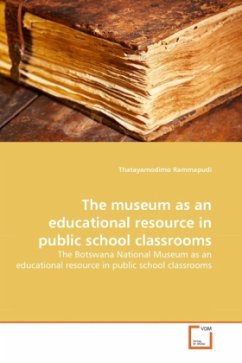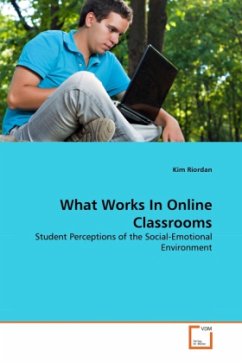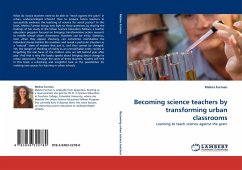
History of Science in Science Classrooms
The Influence of History of Science on Students Attitudes and Conceptions of the Nature of Science
Versandkostenfrei!
Versandfertig in 6-10 Tagen
32,99 €
inkl. MwSt.

PAYBACK Punkte
16 °P sammeln!
From my experience as chemistry teacher, I realized the importance of using the history of science (HOS) in my teaching. HOS attracted my students in a way that I constantly used it throughout my work. In addition, I acknowledged its importance in clarifying the concept of the nature of science. In this book I tried to confirm these premises.The purpose of this study is to investigate the effect of using history of science, following the historical model described by Monk and Osborne (1997) while learning science on students' attitudes toward science and their conceptions of three aspects of t...
From my experience as chemistry teacher, I realized
the importance of using the history of science (HOS)
in my teaching. HOS attracted my students in a way
that I constantly used it throughout my work. In
addition, I acknowledged its importance in
clarifying the concept of the nature of science. In
this book I tried to confirm these premises.The
purpose of this study is to investigate the effect
of using history of science, following the
historical model described by Monk and Osborne
(1997) while learning science on students' attitudes
toward science and their conceptions of three
aspects of the nature of science (NOS). These
aspects are namely the tentative, the empirical
nature of scientific knowledge, and the role of
scientists' creativity in the development of
scientific knowledge. These specific aspects of the
NOS are addressed in the historical model used.
Results of this study provided support for the use
of a historical perspective without detracting from
the content taught at school.
the importance of using the history of science (HOS)
in my teaching. HOS attracted my students in a way
that I constantly used it throughout my work. In
addition, I acknowledged its importance in
clarifying the concept of the nature of science. In
this book I tried to confirm these premises.The
purpose of this study is to investigate the effect
of using history of science, following the
historical model described by Monk and Osborne
(1997) while learning science on students' attitudes
toward science and their conceptions of three
aspects of the nature of science (NOS). These
aspects are namely the tentative, the empirical
nature of scientific knowledge, and the role of
scientists' creativity in the development of
scientific knowledge. These specific aspects of the
NOS are addressed in the historical model used.
Results of this study provided support for the use
of a historical perspective without detracting from
the content taught at school.












